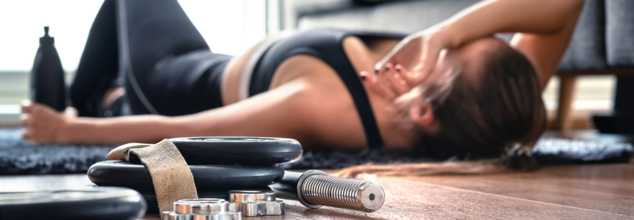
(Credit-Canva)
Your Diet May Play A Crucial Role In Reducing Risk Of Tinnitus
With the rise of headphones and earphones trends, ear health has also come into spotlight. One such condition that was highlighted, is Tinnitus. Tinnitus is a condition where you hear ringing in your ears, which is not caused by an external source. It is a common condition according to Mayo Clinic, which affects 15% to 20% of people, especially older adults. It could be caused by age-related hearing loss, could be a sign of an ear injury or an issue with the circulatory system. It is a treatable condition, in which they reduce the noise or mask the noise tinnitus causes.
Many people know that loud noises can trigger tinnitus, using earplugs or turning down the volume helps. Now, scientists are looking at food. They think that what you eat might also change your chance of getting tinnitus. A new study published in the BMJ ‘Association of 15 common dietary factors with tinnitus’ suggests that eating certain foods could help stop that annoying buzzing or ringing in your ears. It means that simple changes to your diet, like eating more fruit or drinking more milk, might be another way to keep your hearing healthy. This is good news because it gives people more options to protect their ears besides just avoiding loud sounds.
What Foods Were Highlighted In The Study?
The study suggests that increased consumption of certain foods is associated with a reduced risk of developing tinnitus. Researchers, led by Qinxiu Zhang from Chengdu University of Traditional Chinese Medicine, analyzed data from over 300,000 individuals across eight studies. Researchers think these foods might help your ears in a few ways.
- Fruits showed 35% reduction in tinnitus risk.
- Dairy showed 17% reduction
- Caffeine showed 10% reduction
- Fiber showed 9% reduction
Too much sugar or swelling can hurt your ears. All these foods might also help your blood vessels and protect your nerves. Good blood flow and healthy nerves are important for good hearing. It's like these foods give your ears extra protection by keeping everything working smoothly. They have things that fight damage and keep your body healthy, which could help prevent tinnitus.
Some Things To Keep In Mind
Even though the study is interesting, it's important to be careful. The research wasn't perfect, so we can't be sure about everything. The scientists said the evidence was "low quality," meaning they need more proof. Also, eating a lot of these foods doesn't mean you won't get tinnitus at all. There's no guarantee that eating tons of fruit or drinking lots of coffee will stop the ringing. Other foods, like chocolate or vegetables, didn't seem to make a difference. And, we still don't know exactly why people get tinnitus. It's complicated, and many things can cause it. So, while food might help, it's not a cure. We need more studies to be sure.
This study suggests that changing your diet could be a helpful way to manage tinnitus. If you have ringing in your ears, it might be worth trying to eat more fruits, fiber, dairy, and drink some coffee. It's like adding another tool to your toolbox for hearing health. Doctors might start talking to patients about their diet as part of their treatment plans. This could be a simple and natural way to help people with tinnitus. But, it's important to remember that diet is just one part of the puzzle. We still need to avoid loud noises and take care of our ears in other ways. More research will help us understand better how food can help with tinnitus.

(Credit-Canva)
Scientific Speaking! What Happens To Your Body When You Are Sleepwalking?
People have their own unique way of doing things, even sleeping. Having traits like snoring when you are sleeping, talking or mumbling occasionally is normal and not out of the ordinary.
When you sleep, your body is busy fixing itself and getting ready for the next day. Your brain also works to clean up and store memories. But, for some people, a part of the brain that controls movement can turn on while they're still asleep. This is sleepwalking. People who sleepwalk might walk around, talk, and even have their eyes open. They look like they're awake, but they're not.
The Cleveland Clinic explains that if you try to wake them up suddenly, they might get confused or upset. So, it's better to gently guide them back to bed. This helps keep them safe from getting hurt.
Sleepwalking isn't always like you see in movies, with someone walking with their arms out. Sometimes, people do normal things like getting dressed or trying to eat, but they might be clumsy. They could even try to do dangerous things, like drive or climb out a window. What's strange is that they won't remember any of it the next day. It happens during a deep part of sleep. It's considered a sleep problem, like sleep talking. It's important to know that people sleepwalking are not doing it on purpose, and they are not fully aware of what they are doing.
What Causes Sleepwalking, Can You Treat It?
Sometimes, sleepwalking runs in families, so it can be inherited. But it can also happen because of other things. If you don't get enough sleep or if you're really stressed, you might sleepwalk. If you hurt your head, that can also cause it. Drinking alcohol or taking certain medicines can also make it happen. And some sleep problems, like when you stop breathing for a bit while sleeping, can also cause sleepwalking. Kids sleepwalk more often than adults, and usually, they stop doing it when they get older.
If you only sleepwalk once in a while, you probably don't need any special treatment. The most important thing is to make sure your home is safe. Put away sharp things, lock the doors, and close the windows. If you're sleepwalking a lot and it's making you tired during the day or bothering other people, you should see a doctor. They can figure out why you're sleepwalking. They might suggest talking to a therapist to help with stress, or they might give you medicine to help you sleep better. If your medicine is causing it, they might change it. Also, having a good bedtime routine and not drinking alcohol before bed can help.

(Credit-Canva)
Feeling Stressed From Work? It Time For ‘Bed Rotting’
Unwinding after work is a very important and is consider one of the best parts the day. The stress of work can affect the mental health of workers. According to American Institute of Stress, 47% of workers say that majority of their stress comes from work and 77% believe that work-related stress gas negatively affected their mental health.
Sometimes, you just need a break, this is where "Bed rotting" comes in. It is when you stay in bed for a long time, not to sleep, but to relax. This can be good for your health and if you're really stressed or tired, it might also help you calm down. It's like pressing a pause button which feels like a have permission to relax. It's a way to give yourself time to recharge when you feel like you're running on empty. It's a break from all the things you have to do every day.
Potential Disadvantages and Concerns
Staying in bed too long can cause problems. If you do it for more than a day or two, it might be a sign that you're feeling really down. You also miss out on spending time with friends and family. And if you don't do your work or go to school, you might feel even more stressed later. What you do in bed matters too. If you spend all your time on your phone, it can make you feel worse. You need to be careful not to let "bed rotting" become a habit. It's better to do it every once in a while, not all the time. In a 2005 review ‘Deconditioning in the hospitalized elderly’ the author explained how prolonged bed rest could mean a decline mental state as well as a functional loss in daily activities.
Your bed should be for sleeping. If you spend a lot of time in bed doing other things, your brain gets confused. It won't know when it's time to sleep. This can make it hard to fall asleep at night. Also, when you stay in bed, you're not moving around. This can make it harder to sleep well. If you watch TV or work in bed right before bedtime, your mind will be too active to fall asleep quickly. It's better to do those things somewhere else and only go to bed when you're ready to sleep.
Link on Mental Health
If you're feeling sad or worried, you might want to stay in bed all day. But this might make you feel worse. When you don't do anything, you stay in the same bad mood. It can make you feel even more sad and lonely. It's important to do things that make you feel good, even if you don't feel like it. The Sleep Foundation explains that moving around and doing fun things can help you feel better. If you stay in bed too much, it can become a bad habit and make you feel worse in the long run.
If you want to try "bed rotting," do it the right way. Do things that help you relax, like reading or meditating. Set a timer so you don't stay in bed too long. Think of it as a short break, not a way to live all the time. If you start to feel really sad or don't want to leave your bed, talk to someone. It's important to get help if you need it. "Bed rotting" should be a way to feel better, not a way to avoid your problems.

(Credit-Canva)
Failing To Recover Successfully After Workout? You May Be Lacking THIS
Imagine glucose as the fuel that makes your car run. People believe sugar is the enemy of fitness, but that is far from the truth! Your body needs sugar as it gets converted into energy in your body. It's not just about eating sugary snacks, it's about how your body turns food into usable energy. People who love to work out know that you need sugar to exercise, so instead of making it your opponent, you need to learn how to use it well. It not only energizes you, but it also helps you recover from your work fatigue. Studies have shown how chocolate milk is a great way to recover quickly after an intense workout. First the protein in it helps, and then the carbs in the drink break down into glucose and replenishes your muscles. Glucose powers your muscles and why it's more than just a quick sugar rush. Think of it as your workout buddy, always there to give you the energy you need.
How Does Glucose Energize Your Body?
When you eat food, especially carbohydrates like bread or pasta, your body breaks them down into a simple sugar called glucose. This glucose goes into your bloodstream, ready to be used as energy. But your body needs help getting the glucose into your cells. That's where insulin comes in. Insulin is like a key that opens the door to your muscle cells, allowing glucose to enter. Once inside, the glucose is either used right away for energy or stored as glycogen for later. This process, called glucose metabolism, is crucial for keeping your energy levels steady, whether you're relaxing or working out hard. It's how your body turns food into the power you need.
Think of glycogen as your muscles' secret energy stash, like a piggy bank you save up for a rainy day. Similar to how camels store all the nutrients they need for long days and times when they do not have enough food, your liver also stores glycogen for days you may need it. For example, when you start a tough workout or need to run fast, your body taps into these glycogen stores for quick energy. This ability to quickly use stored energy is really important for high-intensity activities. It's like having extra batteries ready when your main ones run low, making sure you can keep going strong.
What is The Best Source To Energize Your Body?
During exercise, your body uses two main sources of fuel: carbohydrates and fats. The type of fuel your body prefers depends on how hard you're working out. If you're doing a light activity, like a slow walk or gentle yoga, your body mainly uses fat for energy. Fat provides a steady, long-lasting energy supply, perfect for low-intensity workouts. But when you start doing harder exercises, like running fast or lifting heavy weights, your body switches to using carbohydrates. Carbs can be broken down much faster than fats, giving you a quick burst of energy. Knowing when your body uses carbs or fats helps you plan your workouts and diet better.
Understanding how your body uses glucose is like learning a new skill. It takes time and practice, but it's worth it. By learning how diet, exercise, and glucose work together, you can make smarter choices about your food and workouts. This knowledge helps you improve your performance, recover faster, and stay healthy. It's like learning the secret language of your body, allowing you to fine-tune your approach to fitness. The next time you work out, remember the science of glucose and how it's fueling your every move. It's the sweet science that powers your fitness journey.
© 2024 Bennett, Coleman & Company Limited

